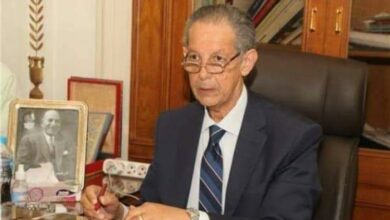A number of Islamist groups have given conditional approval to a document containing guidelines for Egypt’s future constitution, provided that it does not include supra-constitutional principles, the chairman of the liberal Wafd Party, Al-Sayed al-Badawy, has announced. Those groups include the Jama'a al-Islamiya and Salafi movements, he said.
“I held a meeting at the party’s headqurters with representatives from Salafi movements and the Jama'a al-Islamiya in order to agree on unity and renounce disagreement, especially in constitution-related issues,” Badawy told Al-Masry Al-Youm on Monday.
On 12 August, Ali Selmy, deputy prime minister for political affairs, presented a draft document of supra-constitutional principles concerning citizenship and the country’s identity as a civil state, drawing heavily on principles laid down in constitutions internationally and in human rights declarations.
The document has been subject of fierce debate since then, pitting liberals and secularists, who back the document, against some Islamist groups who oppose it.
Some Islamists, including the Muslim Brotherhood, Egypt’s largest political group, earlier rejected supra-constitutional principles being agreed at this stage, defending instead the results of the referendum on constitutional amendments in March, according to which the next parliament was tasked with electing a panel that writes the constitution.
According to observers, secularists and liberals fear Islamist groups will dominate the next parliament, which is scheduled to be elected in November, and which would enable them to select a constitutional panel with Islamist leanings.
Badawy noted that if a new constitutional declaration is made prior to elections, it will be approved by the Democratic Coalition, which comprises 28 political parties including the Freedom and Justice Party (the Muslim Brotherhood’s political arm) and other Islamist parties. He added that the proposed constitutional principles will be binding for all potential signatories.
Adel Afify, chairman of the Salafi Asala Party, said Badawy was attempting to reconcile disputing groups. He revealed that he called during the meeting with Badawy for the suspension of conflict between secularists and Islamists in order to give the armed forces a chance to secure Egypt’s borders with Israel, which witnessed violence last Thursday.
Commenting on fears of a possible Islamist takeover in the upcoming parliament elections, Selmy told satellite news channel Al-Arabiya on Sunday that his country had never been a theocracy. He added that though the religious dimension is fundamental to Egyptian society, it will remain a civil state, as it has always been.




